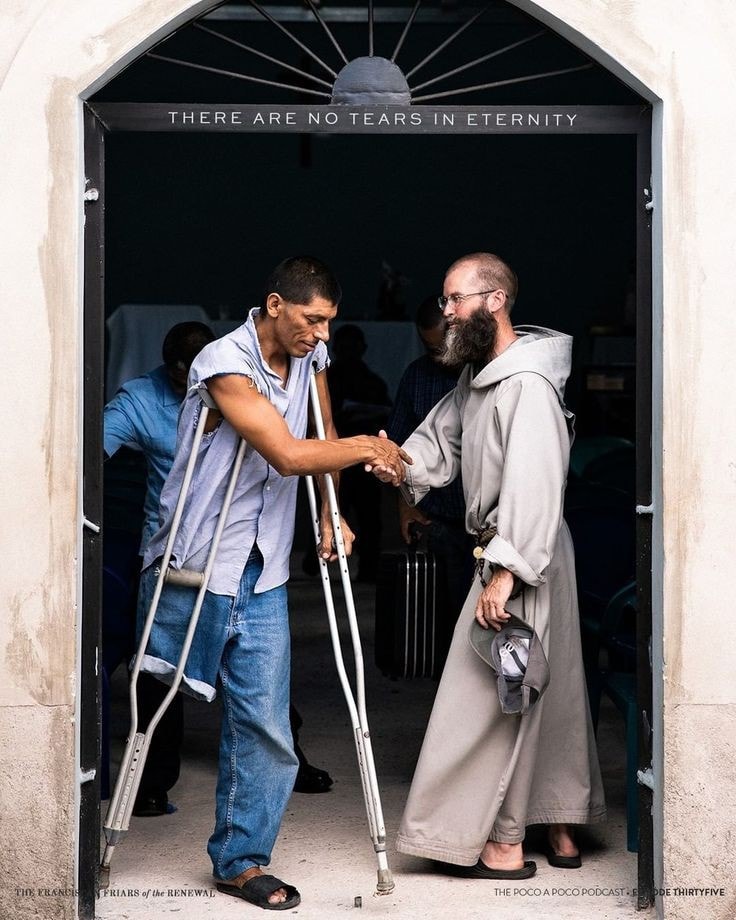
Mk. 9: 30-37
There was a girl drowning in the sea on a hot afternoon. Immediately, people rescued her and brought her to shore. She was unconscious. An old man from a nearby cottage rushed to attend to the girl. When he was about to hold the girl, a famous young man asked the entire crowd to step aside, including the old man. “I was trained to do CPR. Stay out of this. Let me do this.” The old man stepped aside to let the young man perform CPR on the girl. After a minute, the girl regained consciousness and the entire crowd applauded their hand and congratulated the young man for his life-saving effort. The old man was too happy about the selfless service of the young man and appreciated his valuable effort. Anyhow, after two hours, the same young man felt fatigued and struggling to breath. After some time, he felt unconscious. A few minutes later, he regained consciousness in an ambulance rushing to the hospital with that old man beside him checking his pulse. The old man did CPR while he was unconscious. He realised that the old man was a doctor. “Why didn’t you tell me that you were a doctor?” The Doctor answered him: “It doesn’t matter to me whether you call me a doctor or not. A precious life is in danger. I became a doctor, not for fame, but to save lives. We had the same goal, and that was to save the girl. Nothing can surpass the feeling that you have just saved another life. There’s a lot of things to be protected, other than our ego.”
One of the basic questions that we need to introspect is: what is our basic motivation behind being a disciple of Jesus? The reason behind our motivation is very important because it sets the tone of our discipleship. If our basic motivation is coloured by vested interest, then we can’t be authentic followers of Christ. All the same, we need to keep in mind that all of us may not have the correct motivation in the beginning itself. Our motivations should be purified as we grow deeper in our relationship with the person of Jesus. Today’s gospel passage presents a similar experience in the first community of Christian disciples. We see Jesus sharing with them his forthcoming passion and death, but the disciples could not understand the salvific mission of Jesus. Instead, they were quarrelling among themselves to find out who was the greatest among them.
Why did the disciples fail to understand Jesus? The basic fact is that they were not ready to listen to the words of Jesus. Their minds were preoccupied with the craze for power and position. We can’t blame apostles because it is natural to have ambitious desires. The first Christian community also was not exclusive of this human element. These twelve followers of Jesus were of diverse nature and temperament. Some were well educated, some belonged to skilled professional backgrounds, whereas some others belonged to the category of blacklisted. Their age group was also diverse; some were seniors, while others were in their twenties. In this mixed group, problems were natural, and the major one was concerning determining who was the greatest among them.
However, Jesus, who knows all their inner thoughts, presents to them a new way of living life by way of being servants to each other. To put into practice this exhortation of Jesus, one has to put on the garment of humility. It was a revolutionary teaching of Jesus because all authority till then was understood as a privilege to receive service from others, but Jesus transformed this traditional understanding as a privilege to serve others. He says: “The Son of Man came not to be served but to serve, and to give his life as a ransom for many.” (Mt. 20:28) Jesus not only proclaimed this ideology but concretized it in his actions at the Last Supper by putting on the garment of humility and washing the feet of his disciples. Thus, the greatest of all, the second person of the Holy Trinity, the Son of God, the eternal Being, became the servant of his subjects and, like a salve, washed their feet. Thus, Jesus opened a new way of life called life based on love and service. In the church, all those who possess authority are called to serve like Christ. Their authority is sharing in the authority of Christ to serve the needy like Jesus. We need to get rid of our super ego, which creates a false identity that we are better and greater than others. And also, we are meant to receive service rather than live a life of service. Let us put on Jesus and imitate his humility and live a life of charity.